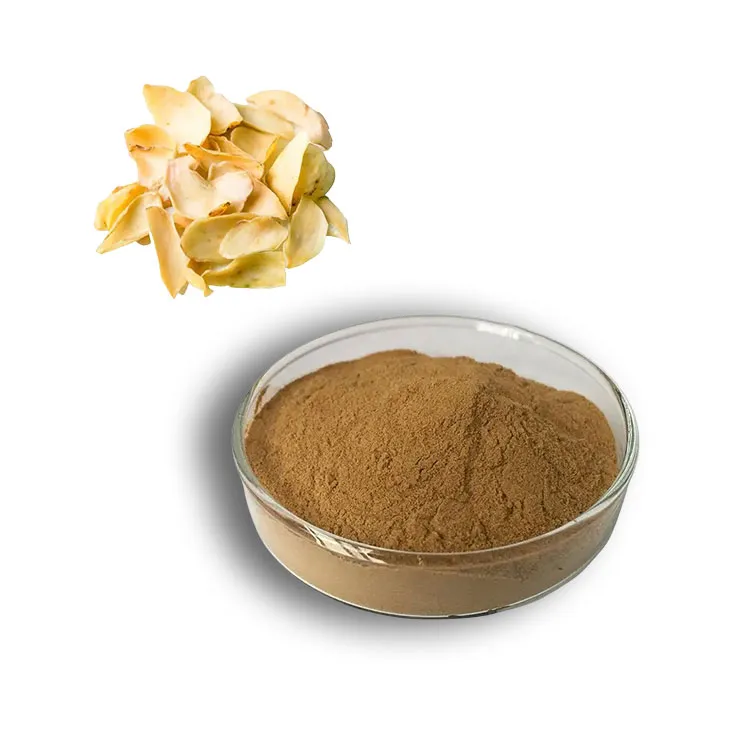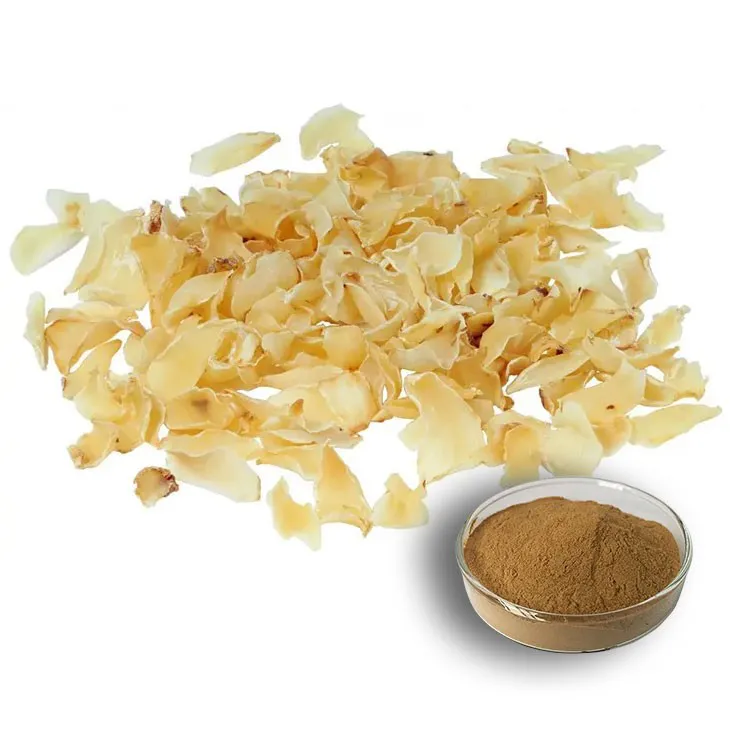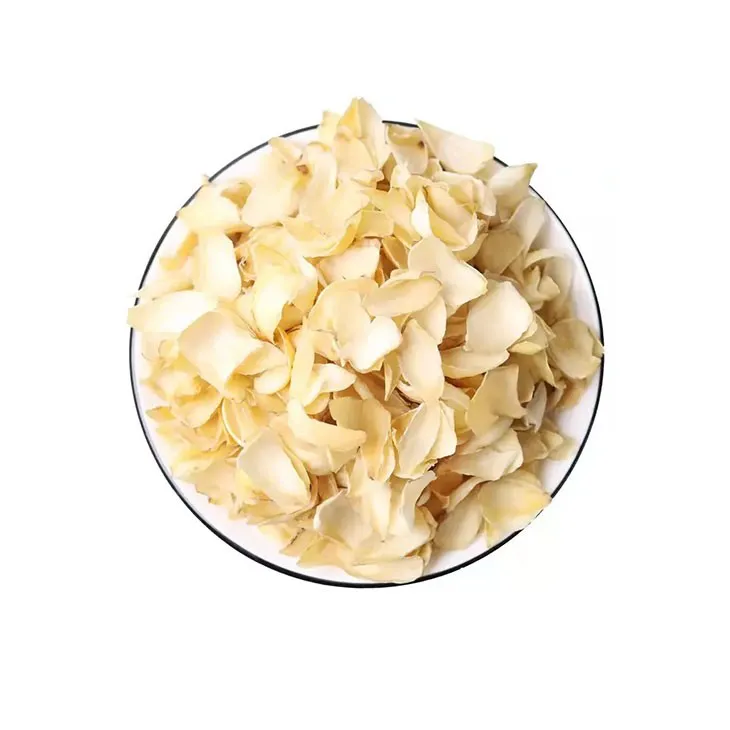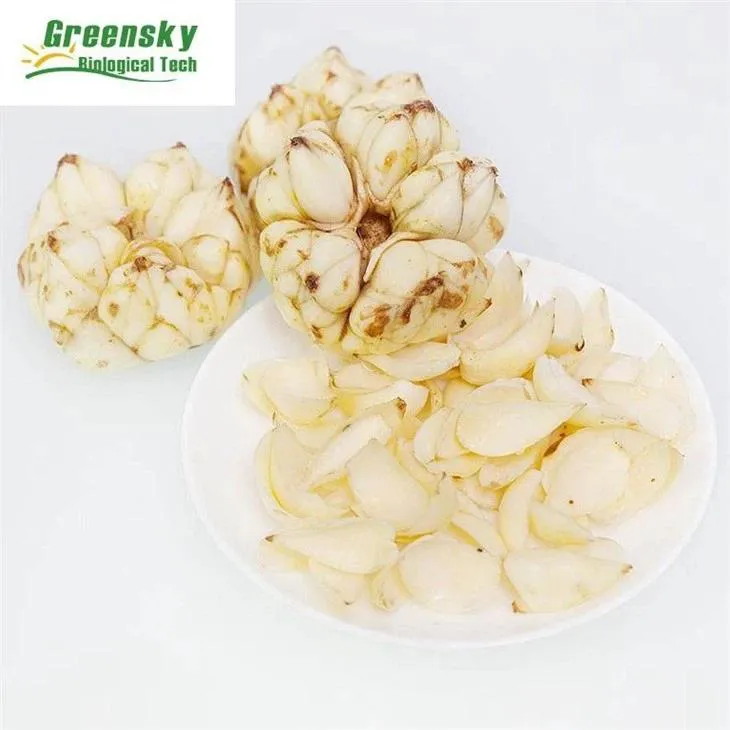- 0086-571-85302990
- sales@greenskybio.com
How do lily extract manufacturers wholesale and customize products?
2024-12-11

1. Introduction
Lily extract has gained significant popularity in various industries such as food, medicine, and cosmetics due to its potential health benefits and unique properties. Manufacturers of Lily extract play a crucial role in supplying this valuable product both in wholesale and customized forms. This article will explore the key aspects of how these manufacturers engage in wholesale and customization processes.

2. Wholesale of Lily extract
2.1 Price Considerations
Price is a dominant factor in the wholesale of lily extract. Manufacturers need to carefully balance the cost of production and the desired profit margin to offer competitive prices in the market. This requires a comprehensive understanding of all the cost - components involved in the production process.
The cost of raw materials, which in this case are lilies, can vary depending on factors such as the season, quality, and availability. For example, if there is a poor harvest of lilies in a particular year, the cost of raw materials will increase, putting pressure on the manufacturer to either absorb the cost or adjust the wholesale price.
Labor costs also play a significant role. From the harvesting of lilies to the extraction process and packaging, a considerable amount of labor is involved. Manufacturers may need to explore options such as automation or outsourcing certain processes to reduce labor costs without compromising on quality.
2.2 Production Process Optimization
To offer competitive wholesale prices, manufacturers often focus on optimizing the production process. This can involve several strategies.
- Efficient Harvesting: Ensuring that lilies are harvested at the right time can maximize the yield of the extract. For example, harvesting lilies at their peak bloom may result in a higher concentration of active compounds in the extract.
- Advanced Extraction Techniques: Employing modern extraction methods can improve the efficiency and purity of the lily extract. Techniques such as supercritical fluid extraction or microwave - assisted extraction may be more effective compared to traditional methods, resulting in a higher - quality product with less waste.
- Streamlined Packaging: Packaging also contributes to the overall cost. Using cost - effective yet durable packaging materials and optimizing the packaging process can reduce costs. For instance, bulk packaging for wholesale orders can be more economical than individual small - sized packages.

3. Customization of Lily Extract
3.1 Understanding Market Demand
Understanding market demand is the cornerstone of customization for lily extract manufacturers. Different industries have diverse requirements for lily extract.
In the cosmetics industry, for example, there is a growing demand for lily extract with specific properties. Some skin - care products may require lily extract with high antioxidant content to combat free radicals and slow down the aging process. Manufacturers need to be aware of these trends and be able to develop products that meet the specific needs of cosmetics companies.
In the food industry, lily extract may be used for its flavor - enhancing or nutritional properties. For instance, some health - conscious consumers may look for lily - flavored products that are also rich in certain vitamins or minerals present in lily extract.
In the medicine industry, lily extract may be used for its potential medicinal properties such as anti - inflammatory or anti - microbial effects. Pharmaceutical companies may require lily extract with a specific concentration of active ingredients for their drug formulations.
3.2 Product Development for Different Applications
Based on the understanding of market demand, manufacturers need to develop customized lily extract products for different application scenarios.
For cosmetics applications, in addition to the antioxidant - rich lily extract mentioned earlier, manufacturers may also develop extracts with specific textures. For example, a lightweight lily extract that can be easily absorbed into the skin may be preferred for use in facial serums.
In the food industry, if the lily extract is intended for use in beverages, manufacturers may need to develop a water - soluble form of the extract. On the other hand, for use in baked goods, the extract may need to be heat - stable to withstand the baking process.
For medical applications, strict quality control and standardization are essential. Manufacturers need to ensure that the lily extract contains the correct concentration of active ingredients and is free from contaminants. For example, in the production of herbal medicines containing lily extract, the extract must meet the pharmacopoeial standards of purity and potency.

4. After - Sales Service in Wholesale
4.1 Product Support
Providing product support is an important aspect of wholesale for lily extract manufacturers. This can include providing technical information about the product to the customers. For example, if a customer in the cosmetics industry is using lily extract in a new product formulation, the manufacturer may provide information on the compatibility of the extract with other ingredients, as well as its recommended usage levels.
Product support also involves answering any queries or concerns that the customers may have. This could range from questions about the shelf - life of the lily extract to its storage conditions. By providing prompt and accurate answers, manufacturers can build trust with their wholesale customers.
4.2 Quality Assurance
Quality assurance is crucial in maintaining long - term partnerships in wholesale. Manufacturers need to have strict quality control measures in place throughout the production process.
This includes testing the raw materials for quality and purity before production. For example, lilies should be tested for pesticide residues and other contaminants. During the production process, regular sampling and testing of the lily extract should be carried out to ensure that it meets the specified quality standards.
After the product is packaged and ready for shipment, final quality checks should be performed. This helps to prevent any sub - standard products from reaching the customers. By ensuring consistent quality, manufacturers can enhance their reputation in the wholesale market and encourage repeat business.

5. Conclusion
In conclusion, lily extract manufacturers face a complex set of tasks in both wholesale and customization. In wholesale, they must navigate price - related challenges through cost - management and production process optimization. In customization, understanding market demand and developing tailored products for different industries are key. Additionally, providing excellent after - sales service in wholesale, especially in terms of product support and quality assurance, is essential for building long - term and profitable relationships with customers. By effectively addressing these aspects, lily extract manufacturers can thrive in a competitive market and contribute to the growth of the industries that rely on their products.
FAQ:
What are the main factors affecting the wholesale price of lily extract?
The main factors include production costs such as raw material procurement, production process costs, and also market competition. Manufacturers need to optimize production processes to reduce costs while ensuring quality to offer competitive wholesale prices. Also, economies of scale play a role. Larger production volumes may lead to lower per - unit costs, which can be reflected in the wholesale price.
How can lily extract manufacturers meet the customization requirements in different industries?
Manufacturers should first have in - depth research and understanding of different industries such as food, medicine, and cosmetics. They need to have advanced R & D capabilities to develop lily extract with specific properties according to the requirements of different industries. For example, for the cosmetics industry, they may need to focus on aspects like skin - friendly properties and stability. Close communication with customers is also essential to accurately grasp their customization needs.
What kind of after - sales service is important for lily extract wholesale?
Product support is crucial. This includes providing technical information about the lily extract, such as its composition, usage methods, and storage conditions. Quality assurance is also vital. Manufacturers should be able to handle issues such as product quality complaints promptly and effectively. Offering product replacement or refund policies in case of quality problems can help build trust with wholesale customers and establish long - term partnerships.
How can lily extract manufacturers find potential wholesale customers?
They can participate in relevant industry trade shows and exhibitions, where they can showcase their products and directly communicate with potential customers. Online marketing is also an effective way. Using platforms like industry - specific websites, social media platforms for business - to - business promotion can increase brand awareness. Additionally, establishing good relationships with industry influencers or consultants can also help get referrals to potential wholesale customers.
What are the quality control measures in the production of lily extract for customization?
Firstly, strict raw material selection is necessary. Only high - quality lily raw materials should be used. During the production process, strict compliance with production standards and Good Manufacturing Practice (GMP) is required. This includes controlling factors such as temperature, pressure, and reaction time precisely. Regular quality testing at different production stages, such as raw material inspection, in - process inspection, and final product inspection, is also essential to ensure that the customized lily extract meets the specified quality requirements.
Related literature
- Title: Advances in Lily Extract Research and Its Industrial Applications"
- Title: "The Role of Lily Extract in the Cosmetics and Food Industries"
- Title: "Optimizing Production Processes of Botanical Extracts: A Case Study of Lily Extract"
- ▶ Hesperidin
- ▶ citrus bioflavonoids
- ▶ plant extract
- ▶ lycopene
- ▶ Diosmin
- ▶ Grape seed extract
- ▶ Sea buckthorn Juice Powder
- ▶ Beetroot powder
- ▶ Hops Extract
- ▶ Artichoke Extract
- ▶ Reishi mushroom extract
- ▶ Astaxanthin
- ▶ Green Tea Extract
- ▶ Curcumin Extract
- ▶ Horse Chestnut Extract
- ▶ Other Problems
- ▶ Boswellia Serrata Extract
- ▶ Resveratrol Extract
- ▶ Marigold Extract
- ▶ Grape Leaf Extract
- ▶ blog3
- ▶ blog4
- ▶ blog5
-
Pure 85% Tomentil Extract.
2024-12-11
-
Andrographis Paniculata Extract Powder
2024-12-11
-
Nettle Root Extract
2024-12-11
-
Lemon Juice Powder
2024-12-11
-
Kidney Bean Extract
2024-12-11
-
Lavender Extract
2024-12-11
-
Longan Extract
2024-12-11
-
Yam Extract
2024-12-11
-
Kupilu Extract
2024-12-11
-
Cocoa Extract
2024-12-11
-
Bitter Melon Extract
2024-12-11





















